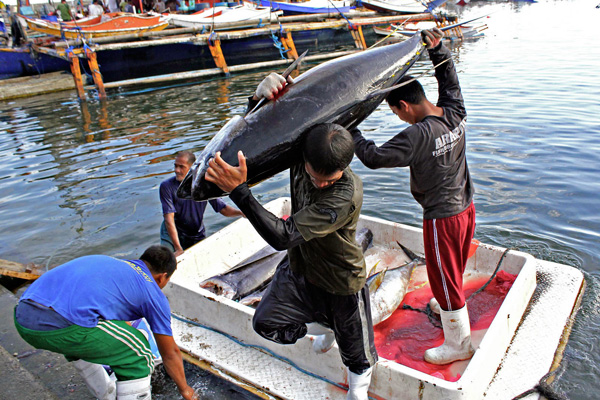GENERAL SANTOS CITY (MindaNews / 01 September) — The Department of Trade and Industry (DTI) expects a surge in tuna exports to the European Union (EU) with the impending implementation of the country’s new free trade agreement with the European Free Trade Association (EFTA).
Trade and Industry Secretary Ramon Lopez said the new trade deal will open up more access to the EU for fresh and processed tuna products, which are already enjoying duty-free treatment under the 28-nation bloc’s Generalized Scheme of Preferences Plus (GSP+).
“This is a another opportunity that our tuna industry, especially the exporters, can build on, as we continue to seek better access for our products in the international markets,” he said at the opening of the 18th National Tuna Congress here on Wednesday afternoon.

The Philippines and EFTA states Iceland, Liechtenstein, Norway and Switzerland signed a free trade agreement in April to boost their cooperation and exchanges.
The broad-based deal covers trade in goods and services, investment, competition, the protection of intellectual property rights, government procurement, and trade and sustainable development.
EFTA agreed to “abolish all customs duties on industrial products while the Philippines will gradually lower or abolish its duties on the vast majority of such products.”
Lopez said the agreement will come into force once ratified by the four EFTA member-countries.
“This is an exciting news for the tuna industry because the EFTA has more liberal rules of origin or regime on tuna products,” he said.
He urged tuna industry players to take advantage of the new trade deal and the inclusion of the country in the EU’s GSP+ in December 2014.
In 2015, he said the EU became the country’s third largest export partner after coming in fourth in the previous year.
Lopez said the country’s exports to the EU grew by 27 percent in the first half of 2015 due to the inclusion of a range of products into the GSP+.
In terms of tuna, he said the Philippines is now the number one supplier of “tuna prepared as sardines.”
It is also the top exporter of products to Europe under the category of “fish prepared or preserved but not minced.”
To ensure that the gains of the GSP+ are sustained, Lopez cited the need for tuna producers and exporters maintain their adherence to the product quality standards set by the EU as well as ensure that the rights of their workers are respected.
The country and the fishing sector must also maintain its vigilant stance against illegal, unreported and unregulated fishing, he said.
He commended the efforts of local tuna companies in keeping up with the requirements set under the GSP+.
Lopez cited tuna canners Alliance Select Foods International, Celebes Canning Corporation, General Tuna Corporation, Ocean Canning Corporation, Philbest Canning Corporation, Seatrade Canning Corporaion, Citra Mina Group of Companies and the RD Group of Companies.
“Your efforts to meet the requirements of the EU market have resulted to the increased competitiveness of our exports in fisheries and generated more job opportunities forour people,” he said.
General Santos City, dubbed the country’s “tuna capital,” has hosted the National Tuna Congress since it was first held in 1999.
The city hosts six of the country’s seven tuna canneries and other related ventures that generate an average of nearly US$ 300 million in annual export receipts. (MindaNews)







